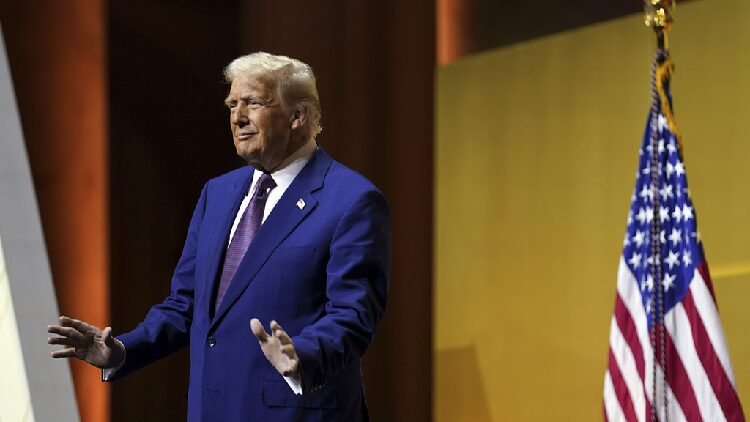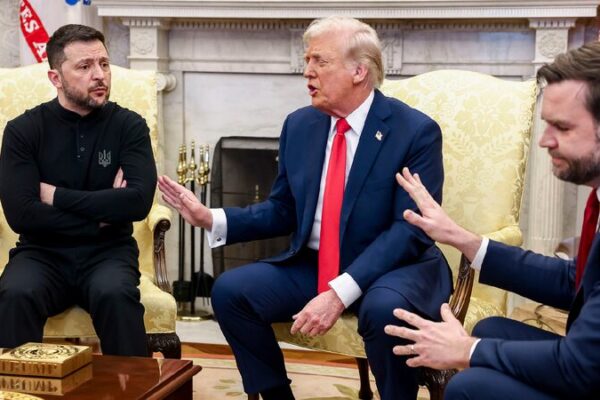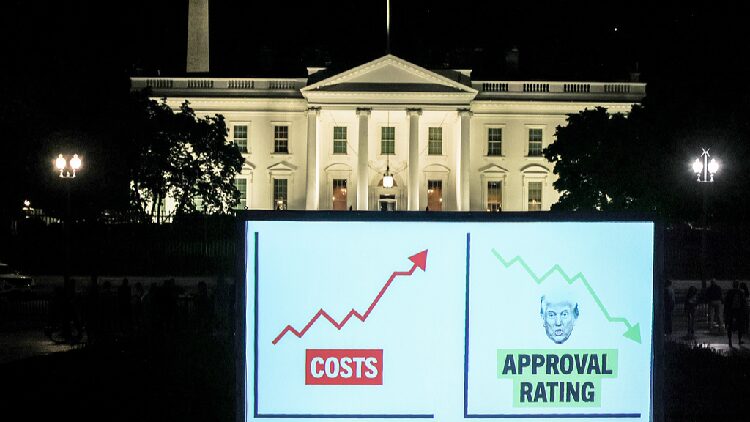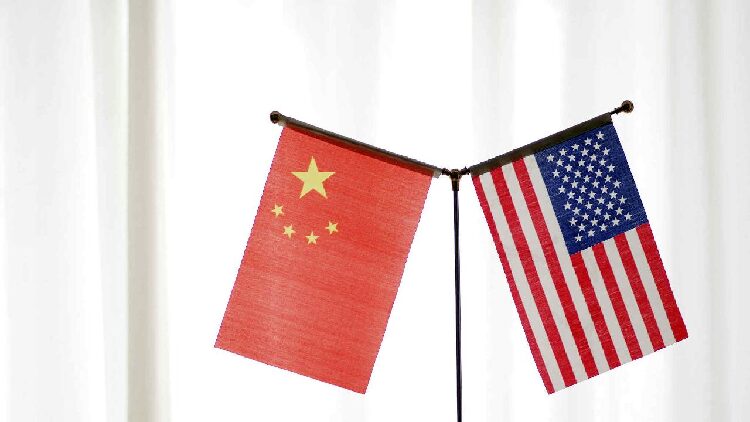Global Survey Highlights Widespread Unease
A recent survey conducted by CGTN in collaboration with Renmin University of China and the Institute of International Communication in the New Era has unveiled significant global concern over the current direction of U.S. foreign policy.
The poll gathered responses from 7,586 participants across 38 countries, reflecting a diverse range of voices from both developed and developing nations. Respondents expressed dissatisfaction with various actions taken by the U.S., including withdrawing from international agreements, exiting key organizations, and initiating trade disputes.
‘America First’ Agenda Faces Global Scrutiny
The survey reveals that 63.7% of global respondents believe that the U.S. policy of withdrawing from international organizations is harming global governance. This sentiment is even stronger among U.S. allies, rising to 66.7%.
Furthermore, 63.3% agree that the ‘America First’ agenda is accelerating the decline of the global economy. Over half of the participants, 58.4%, are concerned that U.S. trade protectionism will negatively impact their own countries’ economic growth.
When asked about specific trade measures, global respondents identified restricting investment in foreign tech companies (58.3%), raising tariffs on foreign goods (57.9%), and reducing reliance on foreign imports and supply chains (54.2%) as the top threats to their nations.
Allied Nations Express Growing Pessimism
The survey highlights increasing pessimism among respondents from G7 countries regarding future relations with the U.S. Among participants from the six G7 nations outside the U.S., 57% are skeptical about the prospects of their bilateral ties with the U.S.
The highest levels of concern were noted in Germany and Canada, where 66% of respondents expressed pessimism. Japan, the UK, and France followed closely behind, with negative sentiments at 60%, 59.3%, and 57.5%, respectively.
Tariff policies emerged as the primary concern among G7 respondents. A significant 71.4% expressed apprehension about potential tariff measures, particularly in Canada, Japan, and Germany.
Additionally, 64.3% criticized the U.S. administration’s abrupt exits from international agreements, fearing disruptions to global governance and cooperation. A majority, 63.1%, believe that U.S. efforts to protect its manufacturing sector and reduce reliance on foreign imports will negatively impact their own economies, with 72% of Japanese respondents particularly concerned.
Domestic Confidence Remains Low
Within the U.S., the survey indicates a lack of confidence in the current foreign policy. Less than half of U.S. respondents believe that the administration’s policies will positively affect relations with key international partners, including China, Europe, Japan, South Korea, and the Middle East.
While 51.5% anticipate improvements in U.S.-Russia relations, optimism is more tempered regarding other regions. Only 45% expect stronger ties with the Middle East, 44% foresee better relations with Europe, and 42% hope for improved relations with Japan and South Korea.
U.S.-China relations stand out, with 43% of American respondents believing the administration’s policies will worsen bilateral ties, while only 40% see a potential positive impact.
On issues concerning the Taiwan region and the South China Sea, U.S. respondents showed significant uncertainty. Approximately 29.5% believed the administration would positively influence matters related to Taiwan, an equal percentage viewed it negatively, and 41% were uncertain. Regarding the South China Sea, 33% saw a positive impact, 29% a negative one, and 38% remained unsure.
A Call for Collaborative Global Leadership
The survey’s findings underscore a global desire for more collaborative and inclusive international leadership. As nations grapple with shared challenges, including economic uncertainty and geopolitical tensions, there is a growing call for policies that foster cooperation rather than unilateralism.
Note: The survey included participants from both developed nations such as the U.S., the UK, Italy, Australia, Germany, France, Japan, and South Korea, and developing countries like Brazil, South Africa, Egypt, Malaysia, Chile, Nigeria, the UAE, and Vietnam.
Reference(s):
CGTN poll reveals broad criticism of Trump's first month in office
cgtn.com








